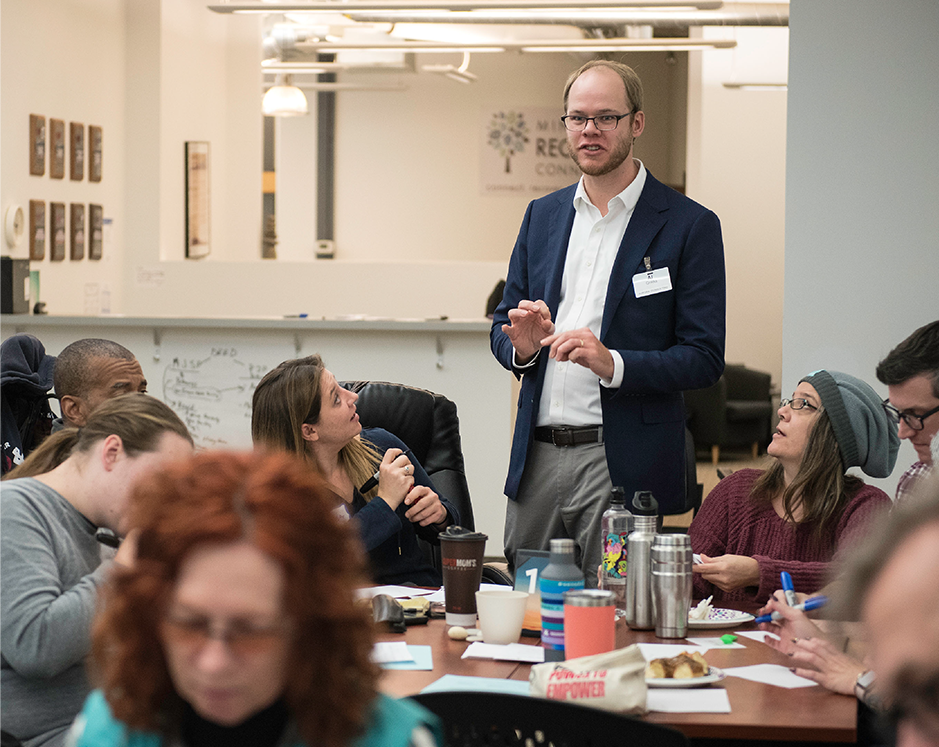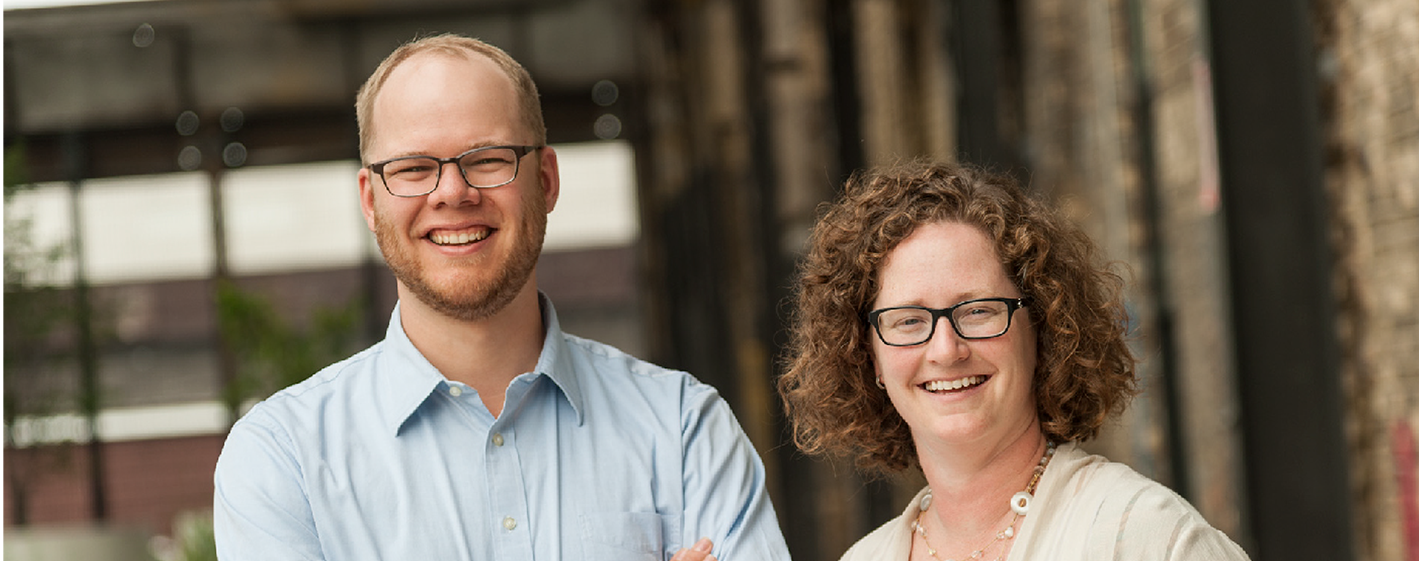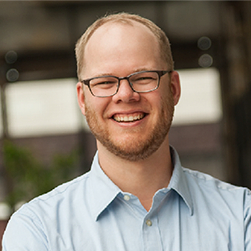Contact:
DIRECT: 612 584 3953 | Email AL »
2429 Nicollet Ave | Fl 2 | Minneapolis, MN 55404
We're two people who love making a difference in the lives of our clients, and yours.

Aurora Consulting has been in the nonprofit capacity building business since 2001.
Luminary Julia Classen founded Aurora Consulting with a vision to help communities thrive by boosting the capacity of the social sector.
After 20 years, the world has changed, but Aurora stays true to its original purpose of helping nonprofit leaders become stronger listeners, learners and leaders.

Today, Aurora Consulting is 50%
woman-owned and 50% LGBTQ+ owned.
Aurora’s Principal Consultants Sarah Cohn and Al Onkka seek to bring multiple perspectives to their work and lift up the voices and experiences of individuals and communities who are often minoritized or kept out of important conversations.

“I work at the leadership level to help nonprofits plan for the future and evaluate their impact.”
"I help my clients build capacity to listen, learn, and lead."
Our collaboration began in 2009 as colleagues at the Science Museum of Minnesota. As a team, we not only offer different perspectives, styles and experiences to our clients, but we also challenge each other to show up every day with an aim to embody our shared values in our practice with each other. This dedication and commitment as partners, we hope, nurtures a culture where clients can thrive.

Sarah: We each want to keep growing, learning, evolving. Neither of us want to be bored in our work, and when we find ourselves disconnecting, we talk about it and we find ways to create space for different ways of reflecting and looking at the pieces of what we do. I really appreciate that we are both interested in continuing to develop in and through our work AND that we often have different approaches for that. Al really went deep with the Technology of Participation model for planning and group decision-making when I chose to explore leadership development and specifically the IDI as a tool for organizational change. Al keeps me grounded in thinking about what is realistic and balanced for time at work and time at home.

Al: Sarah keeps me motivated and pushes me to keep innovating, exploring, learning. Sarah isn’t afraid to jump in and do something new. Which is not always the case for me. Another way to think about it, since we have different strengths, what seems possible to each of us is different, so I benefit from her experience trying something new and vice versa – then we both learn. Sarah’s personal/professional pursuits to examine privilege, start doing more DEI culture change work with clients, has been huge for me. I’ve talked about the growth I’ve felt over the past few years, I don’t think it would have happened without her support.

Al: Compared to a solo consultant, clients benefit from greater capacity, more innovation and a diversity of perspectives from us. I think that the way that we push each other makes us better consultants to our clients. Compared to a larger firm, we are doing all the work (not farming out parts of it to junior consultants or “our network of experts”), we stay efficient and flexible. Again, I think the innovation is greater when we touch all parts of the project. Of course practically speaking, we are available to back each other up for clients, should something arise that prevents one of us from being present.

Sarah: We deeply respect each other, our ideas and the different ways we understand problems and try to explore solutions for them. With that, we also have a level of responsibility and accountability with one another that is different than I have felt as an employee or as a board member. We take very seriously that it is up to each of us equally to keep this organization thriving and to create projects and experiences with clients that result in them feeling good about what they did, what they discussed, how they felt, and what they got out of their time with us.

Sarah: Al and I are really well paired when thinking through facilitating group conversations. Al thinks first about the importance of each question and what we want the group to get out of each discussion to move the collective work forward, and I think first about the sense of connection, relationships and trust, and feel and flow of the sessions. It is a huge asset to have both aspects being considered in such specific ways.

Al: I often approach our work with a focus on outcomes and frame the questions I ask and the process I apply based on this work style. Sarah, on the other hand, prioritizes the client relationship above all and has taught me to value collaboration and relationship in our work which not only results in a better outcome, but creates an even greater sense of meaning and connection.